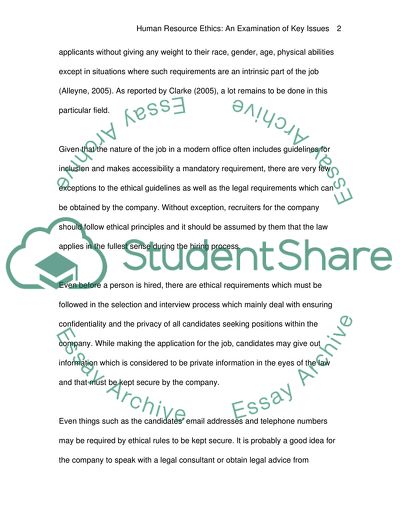Cite this document
(Ethics in Human Resource Management Essay Example | Topics and Well Written Essays - 2500 words, n.d.)
Ethics in Human Resource Management Essay Example | Topics and Well Written Essays - 2500 words. https://studentshare.org/human-resources/1705771-human-resource-ethics-an-examination-of-key-issues
Ethics in Human Resource Management Essay Example | Topics and Well Written Essays - 2500 words. https://studentshare.org/human-resources/1705771-human-resource-ethics-an-examination-of-key-issues
(Ethics in Human Resource Management Essay Example | Topics and Well Written Essays - 2500 Words)
Ethics in Human Resource Management Essay Example | Topics and Well Written Essays - 2500 Words. https://studentshare.org/human-resources/1705771-human-resource-ethics-an-examination-of-key-issues.
Ethics in Human Resource Management Essay Example | Topics and Well Written Essays - 2500 Words. https://studentshare.org/human-resources/1705771-human-resource-ethics-an-examination-of-key-issues.
“Ethics in Human Resource Management Essay Example | Topics and Well Written Essays - 2500 Words”. https://studentshare.org/human-resources/1705771-human-resource-ethics-an-examination-of-key-issues.


